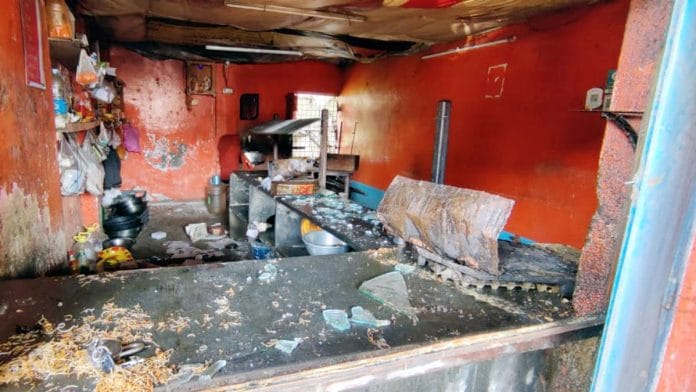New Delhi: The online grievance portal of the National Commission for Scheduled Castes (NCSC) has received 1,276 complaints in the first two months since its launch. More than half the complaints pertain to ‘atrocities’, one of three heads under which grievances can be filed (‘socio-economic’ and ‘service’ are the other two).
The portal was launched on 14 April to facilitate end-to-end e-filing of complaints and grievances, as well as their tracking. It is meant to supplement the physical complaints that the commission receives.
Portal data accessed by ThePrint reveals that 664 of the 1,276 complaints were related to ‘atrocities’ as of 28 June, 372 to ‘socioeconomic’ matters, and 240 to ‘service’ issues.
While ‘atrocities’ can constitute anything from arson, attempt to murder, and caste abuse, to defamation and inaction by police under the Scheduled Castes and Scheduled Tribes (Prevention of Atrocities) Act, ‘service’ grievances deal with such matters as delay in issuance of SC certificate on caste grounds, delay in promotion on caste grounds, and discrimination and harassment in central ministries or departments or in state services or PSUs.
Under the socioeconomic section, complaints are registered by selecting the state/UT/central ministry/department/central PSU/PSB or state PSU concerned, and giving a short description of the grievance.
Speaking to ThePrint, NCSC chairperson Vijay Sampla said the portal is proving helpful in filing of complaints as it allows anyone to upload complaints from any part of the country. “The portal has eased the filing of complaints,” he said.
Explaining how the portal works, Sampla said that, after complaints are received on the portal, a notice is sent to the authorities concerned.
“Sometimes, the authorities are asked to file a report on the matter and are given 15-30 days. If they fail to file the report or give an answer in this time period then another notice is sent with a time extension of another 7 days. If that is also unanswered, then we give them another 3 days. Only after that, hearings are scheduled so that process takes over a month and is still underway. Once this is done, we will start hearings for these complaints,” he added.
“We will soon launch an app as well to make it easier for people to upload their complaints. We are also planning to make the portal available at all Common Service Centres (CSC) at the village level so that those who don’t have access to the internet can also go and file their complaints,” he said.
According to the commission, it received a total of 19,264 (offline) complaints between 1 January and 31 December 2020.
Also Read: Rs 50,000 crore, or 20% of funds allotted for SC welfare, left unused by Modi govt in 4 years
‘Most complaints on the portal from West Bengal’
Sampla said the portal does not maintain a state-wise break-up of complaints. However, he added, the NCSC is in the process of categorising the grievances by state and “a perusal of complaints has shown that most were uploaded in Bengali, which shows most were received from West Bengal”.
According to Sampla, hundreds of members of the SCs have filed complaints with the commission in the wake of the West Bengal assembly election results, which were announced on 2 May. The state — where political violence is common — witnessed a spate of horrific violence in the days following the results, which saw the Trinamool Congress defeat the BJP.
“Since 2 May, at least 4,000 complaints have come in from Bengal outside of the portal. This is the reason why the commission also visited the state to take account of the post-poll violence and atrocities against SCs there,“ said Sampla, a former BJP MP.
The commission visited the state for two days on 14-15 May. It alleged that police had failed to invoke the Prevention of Atrocities Act in cases involving attacks on members of the Scheduled Castes, and asked the Mamata Banerjee government to dismiss the erring police officers.
“This (complaints from Bengal) includes at least 15-20 instances of rape, 20-25 murder cases as well. We found that police had not invoked the SC/ST Act in any of these cases,” he said.
ThePrint reached West Bengal DGP Virendra for a comment on these allegations but had not received a response till the publication of this report. TMC MP Sukhendu Sekhar Roy refused to comment, saying only police could respond to the charge.
According to data provided by the Ministry of Social Justice and Empowerment in the Lok Sabha in February, West Bengal registered a total of 1,048 cases under the Prevention of Atrocities Act between 2015 and 2019, as compared to 49,727 in Uttar Pradesh, 33,657 in Madhya Pradesh, 32,415 in Bihar, 11,319 in Maharashtra, and 7,880 in Gujarat.
(Edited by Sunanda Ranjan)
Also Read: Caste was never a big issue in Bengal politics. This assembly election has changed that






